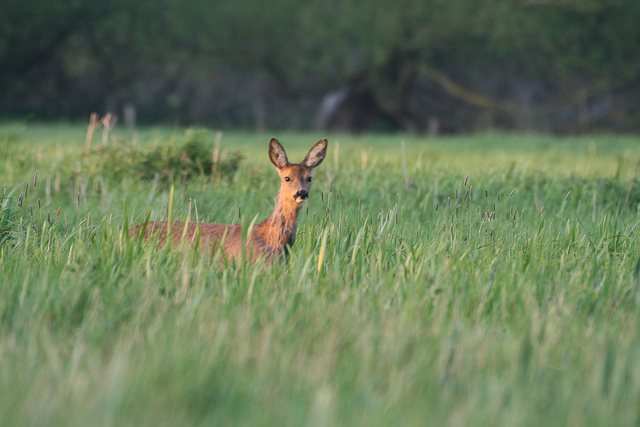How did nature fare in 2012?
This is bound to be a platitude, but 2012 has been an important year for the environment and conservation – there were things we expected and a few surprises. It’s also been an important year for me personally – having started a policy role at a conservation organisation I now witness up close the hard work which environmental NGOs do trying to influence Government decisions and get the best outcomes to protect nature.
I’m not going to try to cover everything here, but here’s a small compendium of some of the highlights from the UK (and a couple from further afield) in 2012 (and near the bottom I recommend a couple of places if you want to keep up with what unfolds in 2013):
1. February
The Government announced winners of its Nature Improvement Area scheme. This sets out areas that will be invested in and managed to improve them for wildlife and nature, taking on board the landscape-scale approach pioneered by organisations like the RSPB, the Wildlife Trusts and advocated by John Lawton in his review for the Government.
2. March
The Government published the National Planning Policy Framework. This document was radically redrafted after the consultation stage and strong lobbying by environmental NGOs. In the redraft, Government rightly recognised the importance of environmental protection and removed text which referred to the default answer to development being yes. This was a big win for the environmental sector in the UK.
3. May
The Government announced controversial plans to capture wild buzzards in order to prevent their impact on pheasants. This resulted in a backlash from the conservation sector and a Government u-turn.
4. June
Rio+20: leaders from across the globe gathered for what turned out to be a highly disappointing global summit which was supposed to bring together sustainability and development.
Personal success – having completed my master’s degree I got a job at the Royal Society for the Protection of Birds working as a climate change policy officer.
5. August
It wasn’t really very high profile, but for me this is one of the most important questions for the environmental movement right now: Tony Juniper and George Monbiot exchanged words in the Guardian about whether or not trying to put a monetary value on nature and the services it provides is a strategy that can help us to protect it, or results in handing it over to the very markets which have been destroying it for decades.
6. September
A major reshuffle after the recess saw Justine Greening, opposed to a third runway at Heathrow, removed from her post as Transport Secretary and Owen Paterson appointed as Secretary of State at Defra – Department of Environment, Food and Rural Affairs.
7. October
The media was frenzied with talk of a badger cull (see here, here and here) to prevent the spread of bovine TB. This was eventually postponed, but the arguments around the cost, the lack of potential impact, and the, frankly dubious, scientific evidence for the benefits were well aired in the mainstream media.
Environmental NGOs came together to declare that Green is Working and to remind the Government of CBI data showing that in the past year, one third of all economic growth came from the green sector.
8. November
The UK was invaded by Chalara fraxinea – a fungal disease which can wipe out ash trees was found in the UK. This symbolised the risks of unfettered, unregulated markets and the importance of having statutory agencies responsible for the environment with real teeth and independence from Government. A friend of mine who works on forestry returned from holiday in the week this story emerged, to discover that he had rather a lot of work to deal with just a few hours after landing back in the country.
The State of the UK’s Birds report revealed that farmland birds have reached their lowest ever levels, less than half of the numbers they were at in 1970.
Personal success – I was informed that I was a winner of Opticron’s A Focus On Nature programme. More on this in 2013 as the projects I’m hoping to help take forward get underway.
9. December
Government launched the Energy Bill – for many a disappointment. We failed to see a target to decarbonise the electricity sector. And George Osborne’s Autumn budget revealed a new commitment to gas power. The Government also delayed a decision on whether to include shipping and aviation in our national carbon targets.
Another UN climate conference, this one in Doha, passed without much achievement. Price Waterhouse Coopers asked whether it’s too late to prevent a two degree rise in global average temperatures.
Findlay Wilde proved that there is hope for nature if people like him keep up their passion and hard work.
And, if you want to keep up with what happens in 2013, then I can do no better than to recommend following the blogs of Mark Avery, former Director of Conservation at the RSPB, and Martin Harper, current Director of Conservation. They both provide daily, accessible and accurate accounts of developments in environmental policy.
If you want to find out about the young people my age crusading to protect nature, then follow the writing of Lucy McRobert.
I suppose the question for 2013 is what the prospects are for nature under the current Government; given what happened in 2012, perhaps the public, in particular young people like me and my peers, can do more to help protect it.

